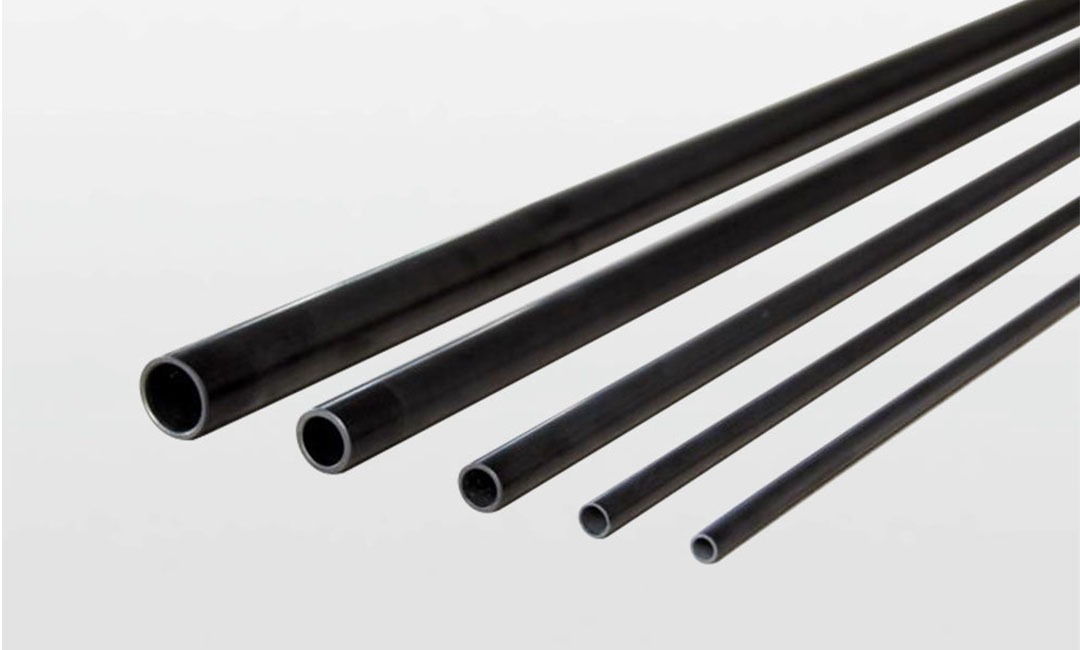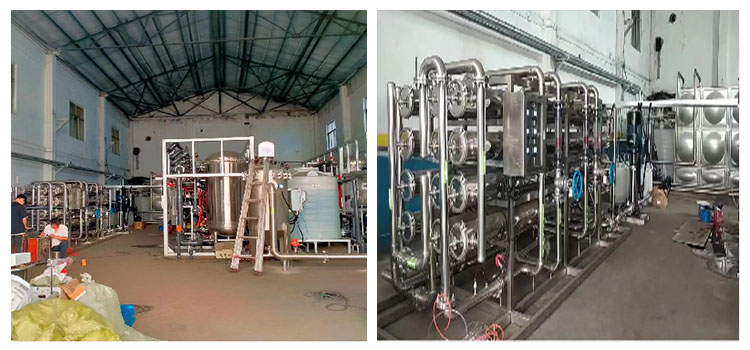Enhanced Durability and Longevity
Silicon carbide water membranes have gained popularity in industrial applications due to their enhanced durability and longevity. These membranes are made from a combination of silicon and carbon, resulting in a material that is incredibly strong and resistant to corrosion. This makes them ideal for use in harsh industrial environments where traditional membranes may degrade quickly.
One of the key advantages of silicon carbide water membranes is their ability to withstand high temperatures and pressures. This makes them suitable for use in a wide range of industrial processes, including desalination, wastewater treatment, and chemical processing. The high thermal conductivity of silicon carbide also allows for efficient heat transfer, making these membranes highly efficient in energy-intensive applications.
In addition to their durability, silicon carbide water membranes are also known for their longevity. Unlike traditional membranes that may need to be replaced frequently, silicon carbide membranes can last for years without losing their effectiveness. This not only reduces maintenance costs but also minimizes downtime, leading to increased productivity and efficiency in industrial operations.
Furthermore, silicon carbide water membranes are highly resistant to fouling, a common issue in industrial water treatment processes. Fouling occurs when contaminants in the water build up on the surface of the membrane, reducing its effectiveness over time. Silicon carbide membranes have a smooth surface that is less prone to fouling, allowing for continuous operation without the need for frequent cleaning or replacement.
Another advantage of silicon carbide water membranes is their chemical resistance. These membranes can withstand exposure to a wide range of chemicals, including acids, bases, and organic solvents, without degrading or losing their effectiveness. This makes them suitable for use in industries where corrosive chemicals are present, such as the petrochemical and pharmaceutical industries.
Overall, the enhanced durability and longevity of silicon carbide water membranes make them the preferred choice for industrial applications. Their ability to withstand high temperatures and pressures, resist fouling, and withstand exposure to chemicals make them highly versatile and reliable in a wide range of industrial processes. Additionally, their long lifespan and low maintenance requirements make them a cost-effective solution for industrial water treatment needs.
In conclusion, silicon carbide water membranes offer numerous advantages over traditional membranes, making them the preferred choice for industrial use. Their enhanced durability, longevity, and chemical resistance make them highly reliable in harsh industrial environments, leading to increased efficiency and productivity. As industries continue to seek more sustainable and cost-effective water treatment solutions, silicon carbide membranes are likely to play a key role in meeting these needs.
High Chemical and Thermal Stability
Silicon carbide water membranes have gained popularity in industrial applications due to their high chemical and thermal stability. These membranes are preferred over traditional materials like polymeric membranes because of their ability to withstand harsh conditions and provide long-lasting performance.
One of the key advantages of silicon carbide water membranes is their resistance to chemical degradation. Unlike polymeric membranes, which can be easily damaged by exposure to aggressive chemicals, silicon carbide membranes are highly resistant to a wide range of chemicals, including acids, bases, and organic solvents. This makes them ideal for use in industries where the water being treated may contain contaminants that could damage or degrade other types of membranes.
In addition to their chemical stability, silicon carbide water membranes also exhibit excellent thermal stability. They can operate at high temperatures without losing their structural integrity or performance, making them suitable for use in applications where the water being treated needs to be heated or cooled. This thermal stability allows silicon carbide membranes to maintain their filtration efficiency even in extreme conditions, ensuring consistent and reliable performance over time.
Another advantage of silicon carbide water membranes is their mechanical strength. These membranes are highly durable and can withstand high pressures and flow rates without experiencing damage or failure. This makes them well-suited for use in industrial processes that require high throughput and efficiency, as they can handle the demands of continuous operation without compromising their performance.
Furthermore, silicon carbide water membranes are known for their low fouling propensity. Their smooth surface and high surface energy make it difficult for contaminants to adhere to the membrane, reducing the risk of fouling and prolonging the membrane’s lifespan. This low fouling propensity also results in lower maintenance requirements and operating costs, making silicon carbide membranes a cost-effective solution for industrial water treatment applications.
In conclusion, silicon carbide water membranes offer a range of benefits that make them well-suited for industrial use. Their high chemical and thermal stability, mechanical strength, and low fouling propensity make them an ideal choice for applications where reliable and efficient water treatment is essential. By choosing silicon carbide membranes, industries can ensure consistent performance, reduced maintenance costs, and improved overall efficiency in their water treatment processes.

Overall, the unique properties of silicon carbide water membranes make them a preferred choice for industrial applications where durability, reliability, and efficiency are paramount. With their ability to withstand harsh conditions, resist chemical degradation, and maintain high performance over time, silicon carbide membranes offer a cost-effective and sustainable solution for a wide range of water treatment needs.
Improved Water Treatment Efficiency
Water scarcity is a pressing issue that affects millions of people around the world. As the demand for clean water continues to rise, the need for efficient water treatment technologies becomes increasingly important. One such technology that has gained popularity in recent years is silicon carbide water membranes.
Silicon carbide water membranes are preferred for industrial use due to their superior performance and durability compared to traditional polymeric membranes. These membranes are made from a combination of silicon and carbon atoms, which gives them unique properties that make them ideal for water treatment applications.
One of the key advantages of silicon carbide water membranes is their high chemical and thermal stability. This allows them to withstand harsh operating conditions, such as high temperatures and aggressive chemicals, without degrading or losing their effectiveness. As a result, these membranes have a longer lifespan and require less frequent replacement compared to polymeric membranes, reducing maintenance costs and downtime for industrial facilities.
In addition to their durability, silicon carbide water membranes also offer superior filtration efficiency. The unique structure of silicon carbide allows for precise control over pore size, which enables these membranes to effectively remove a wide range of contaminants from water, including bacteria, viruses, and organic compounds. This high filtration efficiency results in cleaner water that meets stringent quality standards, making silicon carbide membranes an attractive option for industries that require high-purity water for their processes.

Furthermore, silicon carbide water membranes have a higher flux rate compared to polymeric membranes, meaning they can process more water in a shorter amount of time. This increased productivity not only improves overall water treatment efficiency but also reduces energy consumption and operating costs for industrial facilities. By using silicon carbide membranes, companies can achieve higher throughput and lower operating expenses, making them a cost-effective solution for water treatment applications.
Another benefit of silicon carbide water membranes is their resistance to fouling. Fouling occurs when contaminants accumulate on the surface of a membrane, reducing its effectiveness and requiring frequent cleaning or replacement. Silicon carbide membranes have a smooth and hydrophilic surface that repels foulants, preventing them from adhering and clogging the pores. This anti-fouling property extends the lifespan of the membrane and ensures consistent performance over time, making silicon carbide membranes a reliable and low-maintenance option for industrial water treatment systems.
In conclusion, silicon carbide water membranes offer numerous advantages that make them the preferred choice for industrial water treatment applications. Their high chemical and thermal stability, superior filtration efficiency, increased flux rate, and resistance to fouling make them a reliable and cost-effective solution for industries that require clean and high-purity water. By investing in silicon carbide membranes, companies can improve their water treatment efficiency, reduce operating costs, and ensure a sustainable source of clean water for their operations.

